French and Israeli visions on Artificial Intelligence
What is the best strategy to support the development of AI?
On September 10th, in the frame of a series of panel discussions dedicated to artificial intelligence (AI) and its ethical issues organized by the French Embassy and the French Institute of Israel, Prof. Maj. Gen. (ret.) Isaac Ben-Israel and Prof. Cédric Villani introduced and then discussed French and Israeli strategies on AI.
 While the French strategy, based on the "AI for Humanity" report, was unveiled in 2018, the Israeli strategy has not yet been made public. This debate was thus an opportunity for Isaac Ben-Israel to describe its outlines and objectives, among which is the will to make Israel one of the five world leaders in artificial intelligence.
While the French strategy, based on the "AI for Humanity" report, was unveiled in 2018, the Israeli strategy has not yet been made public. This debate was thus an opportunity for Isaac Ben-Israel to describe its outlines and objectives, among which is the will to make Israel one of the five world leaders in artificial intelligence.
In France and Israel, strategies are based on the identification of sectors defined as priorities: health, transport and defense. If the fourth priority differs from one country to another (environment for France, agriculture for Israel), a surprising common point was raised during the discussions: finance, a strategic area and particularly concerned by the issue of artificial intelligence, has not been defined as a priority in either of the two national strategies. This is mainly due to the ability of the financial sector to develop on its own, with its own resources, without the need for any governmental assistance.
One of the main issues identified by Cédric Villani and Ben Israel is information sharing. Both nationally and internationally, data sharing is essential for the proper development and functioning of AI. However, it implies trust between the various players and the overcoming of obstacles that are more often psychological than technological.
Both strategies substantially tackle the issues of ethics and regulation of artificial intelligence. The development of a secured AI is one of Israel's priorities, as evidenced by the name of its strategy "national secured artificial intelligence initiative". However, France and Israel do not the share the same vision when it comes to the role that the state should play in controlling technological innovations. France would like to implement a legal framework providing rules that would be applicable from the design of algorithms. Israel seems in favor of a freer approach and refuses to frame the development of technologies, preferring a system that corrects dysfunctions a posteriori.
While many similarities between French and Israeli strategies were emphasized, the discussion also highlighted a different understanding of issues related to ethics. In opposition to the French and European vision that promotes a responsible digital environment, based on the concept of ethics by design, Israel defends a model that favors innovation above all, based on a better user education rather than on the supervision of machines.
The replay of the discussion is available on the website ai-and-ethics.com.
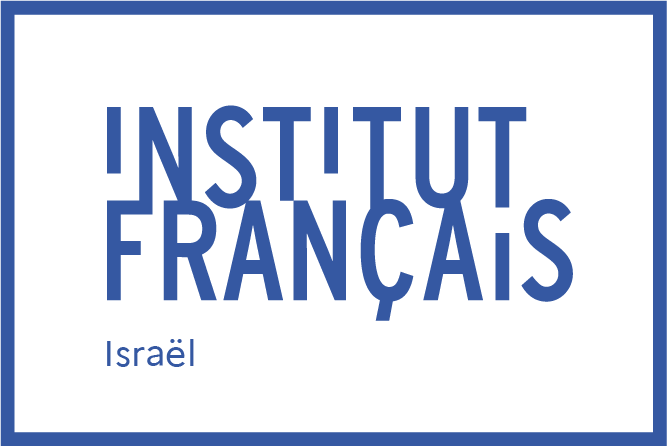









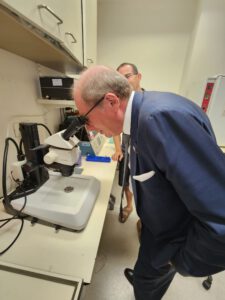

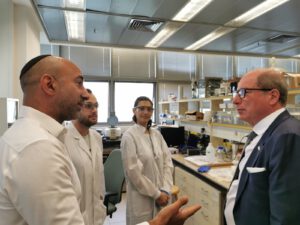



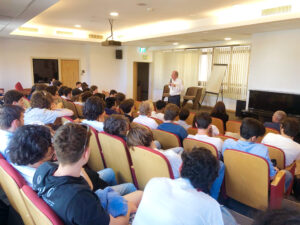



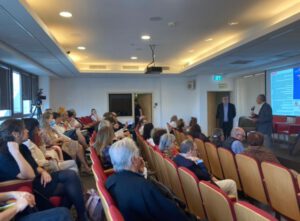














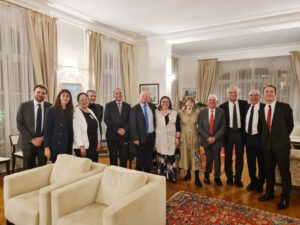








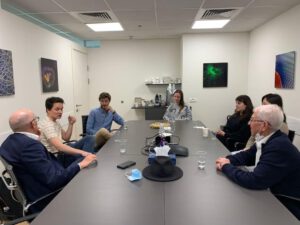

 France is launching a visiting fellowship program for foreign young researchers (holding a doctoral degree for less than 5 years)
France is launching a visiting fellowship program for foreign young researchers (holding a doctoral degree for less than 5 years)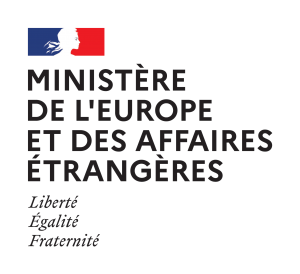
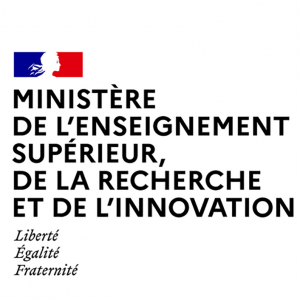
 EURECOM is an internationally recognized graduate school and leading research institution in Digital Science.
EURECOM is an internationally recognized graduate school and leading research institution in Digital Science. בית הקברות הצלבני בעתלית הוא בית הקברות הגדול ביותר שהשתמר בשלמותו במזרח הלטיני. החפירות שנערכו באתר זה אישרו את הפוטנציאל היוצא דופן של האתר בתרומתו לאיסוף הידע על הרגלי הלוויה במזרח הלטיני. במאי 2019 הארכאולוג הצרפתי, איב גלייז Yves Gleize ניהל את החפירה החמישית באתר בית הקברות בתמיכה פיננסית של המרכז הצרפתי למחקר בירושלים (CRFJ), ועידת החפירות של משרד החוץ הצרפתי, אוניברסיטת בורדו וגם של רשות העתיקות והמועצה האזורית חוף הכרמל.
בית הקברות הצלבני בעתלית הוא בית הקברות הגדול ביותר שהשתמר בשלמותו במזרח הלטיני. החפירות שנערכו באתר זה אישרו את הפוטנציאל היוצא דופן של האתר בתרומתו לאיסוף הידע על הרגלי הלוויה במזרח הלטיני. במאי 2019 הארכאולוג הצרפתי, איב גלייז Yves Gleize ניהל את החפירה החמישית באתר בית הקברות בתמיכה פיננסית של המרכז הצרפתי למחקר בירושלים (CRFJ), ועידת החפירות של משרד החוץ הצרפתי, אוניברסיטת בורדו וגם של רשות העתיקות והמועצה האזורית חוף הכרמל.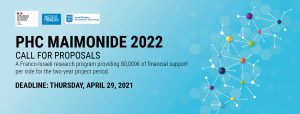 The French Ministry for Europe and Foreign Affairs (MEAE), the French Ministry of Higher Education, Research and Innovation (MESRI) and the Israeli Ministry of Science, Technology and Space (MOST) are pleased to announce the launch of the PHC Maimonides 2022 call for proposals.
The French Ministry for Europe and Foreign Affairs (MEAE), the French Ministry of Higher Education, Research and Innovation (MESRI) and the Israeli Ministry of Science, Technology and Space (MOST) are pleased to announce the launch of the PHC Maimonides 2022 call for proposals. The webinar was hosted by The Minister of Science and Technology, Izhar Shay. He exposed the measures taken by Israel to support research as well as predictive models allowing the best compromise between economic activity and public health issues. The French Ambassador in Israel, Eric Danon, then presented actions implemented by France, among which government funded initiatives, development of competitiveness clusters in health, and raising awareness regarding ethical issues related to AI. He also recalled the tools put in place to strengthen bilateral ties in research and technological innovation, in particular through Business France and the French technical expert based in Israel.
The webinar was hosted by The Minister of Science and Technology, Izhar Shay. He exposed the measures taken by Israel to support research as well as predictive models allowing the best compromise between economic activity and public health issues. The French Ambassador in Israel, Eric Danon, then presented actions implemented by France, among which government funded initiatives, development of competitiveness clusters in health, and raising awareness regarding ethical issues related to AI. He also recalled the tools put in place to strengthen bilateral ties in research and technological innovation, in particular through Business France and the French technical expert based in Israel.
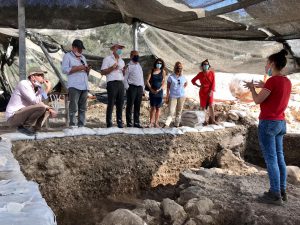
 בקומה שניה
בקומה שניה While the French strategy, based on the "AI for Humanity" report, was unveiled in 2018, the Israeli strategy has not yet been made public. This debate was thus an opportunity for Isaac Ben-Israel to describe its outlines and objectives, among which is the will to make Israel one of the five world leaders in artificial intelligence.
While the French strategy, based on the "AI for Humanity" report, was unveiled in 2018, the Israeli strategy has not yet been made public. This debate was thus an opportunity for Isaac Ben-Israel to describe its outlines and objectives, among which is the will to make Israel one of the five world leaders in artificial intelligence. Women shaping the future of Mathematics and Computer Science research in France and Israel!
Women shaping the future of Mathematics and Computer Science research in France and Israel!